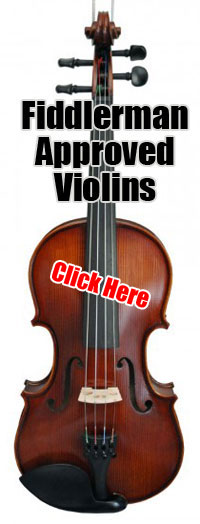Monday, November 8th, 2010
Examining the many sides of a musical prodigy
Fifteen-year-old Anna JiEun Lee, who performs Saturday with the Peoria Symphony Orchestra, is bubbly, extroverted and fun to talk to. But she is not only articulate beyond her years, she is gifted beyond them as well. In fact, there is something uncanny about her accomplishments: Soon after beginning her studies of the violin at the age of 4, she already was performing Paganini’s First Violin Concerto with the Singapore Symphony Orchestra. At 5, she was the youngest diploma recipient at the New International Music Festival and Competition in Seoul, Korea. At 6, she was performing with Singapore’s Braddell Heights Symphony Orchestra. At 11, she appeared on NPR’s “From the Top” and had won the Jack Kent Cooke Young Artist Award for outstanding young musician.
Now 15, Lee’s almost frightening facility with the violin distinguishes her even at Juilliard, where she studies with Peoria Symphony Orchestra music director George Stelluto.
Nevertheless, Lee does not live by music alone. A few moments’ conversation reveals a wide-ranging, omnivorous mind, which recognizes that musical skill is nourished by wider experiences, and which is insatiably curious not only about music but also about what makes society – and by extension, individuals – tick.
“A lot in life is about psychology, the way we look at things,” Lee said recently in a telephone interview. “I could say something is a fact, but actually it would be my perception of a fact, my point of view. . . . I like to debate about philosophy. The way people think and why society works in a certain way.”
A favorite book of Lee’s is Malcolm Gladwell’s “Outliers: The Story of Success,” a book that explores the strange intertwinings of birth, timing and culture that allow ambitious individuals from Mozart to the Beatles to cultivate a level of skill far beyond their competitors. Tenacity, not mere talent, is critical, Gladwell argues. In part, success boils down to a magic number: 10,000 hours of practice. What does Lee think of that?
“I haven’t counted – I’m afraid to count,” Lee said. “What if it’s not 10,000 yet? I think it’s very accurate in another sense. People become famous when they’re young, but they don’t peak until their 20s. I don’t think that just comes from 10,000 hours of practice but from experiences. When you’re young, you have instincts, and those instincts guide you the right way. After a period of time those instincts don’t suffice. You need something to pull on. You need your experiences. You need your emotions. You need a deeper understanding of what you’re doing and what you want to do and what’s going on around you.”
Born in Seoul, Korea, Lee grew up in a music-loving family and was already taking piano lessons when, at the age of 4, she decided to try the violin.
Her father, a violinist who taught the Suzuki method at the family’s Korean church, inspired her.
“We would wait around in church for an hour, a half an hour so my dad could finish his lesson,” Lee said. “I don’t personally recall this – apparently, I asked my parents if my dad could teach me the violin. I guess it was the environment I grew up in. My parents were always playing music around the house. Both my parents are very big music lovers. That’s kind of how I started.”
In part, her father’s example encouraged her to stick with the instrument. But there was more to it than that.
“In a way, it reflects my personality,” Lee said. “In my opinion, pianists are more solitary than string musicians. I think I’m more of a people person. The violin is notorious for high, screechy strings. In a way, I’m notorious for being very loud, very hyper and very bubbly. At the same, I think what is very special about the violin is the G string and the D string – the lower part. Even though we (string players) all share the G string in common, in my opinion it’s a lot more special on the violin. That’s why I say that the violin and I have very similar personalities. A lot of ups and downs. At the same time, very mellow.”
Her path to becoming a professional musician unfolded naturally.
“The more I think about it, the more I realize that there was never a point in my life when I thought, ‘This is what I want to do,’ ” Lee said. “I guess in a way, I was really naive. … It was a gradual kind of thing. I started performing at a very young age. I had tons and tons of support. That really helped me build my confidence and my charisma on stage. It was very gradual, very natural always to be performing.”
Lee met Stelluto four years ago when she was in Juilliard’s Pre-College Chamber Orchestra. In addition to studying performance, she also studies conducting with Stelluto.
Next weekend, Lee will perform Mozart’s Violin Concerto No. 3 – a piece whose exuberance and depth Lee identifies with.
“This piece really captures the essence of Mozart,” Lee said. “It’s very lively, very happy, very cheerful. There is a youthful innocence and naivete that only Mozart could have. He wrote this when he was 19. He was youthful and naive. Throughout his life, no matter how hard things got, Mozart’s music is always cheerful. But at the same time, it’s not shallow. It’s not insignificant. There is something deeper to it. His overall structure is always very childlike and innocent. I think it kind of mirrors his personality. Who knows if this is true? But he’s notorious for fooling around and being a clown. In a way, his light-heartedness really comes through.”
Gary Panetta can be reached at 686-3132 or gpanetta@pjstar.com.
via Examining the many sides of a musical prodigy – Peoria, IL – pjstar.com.
